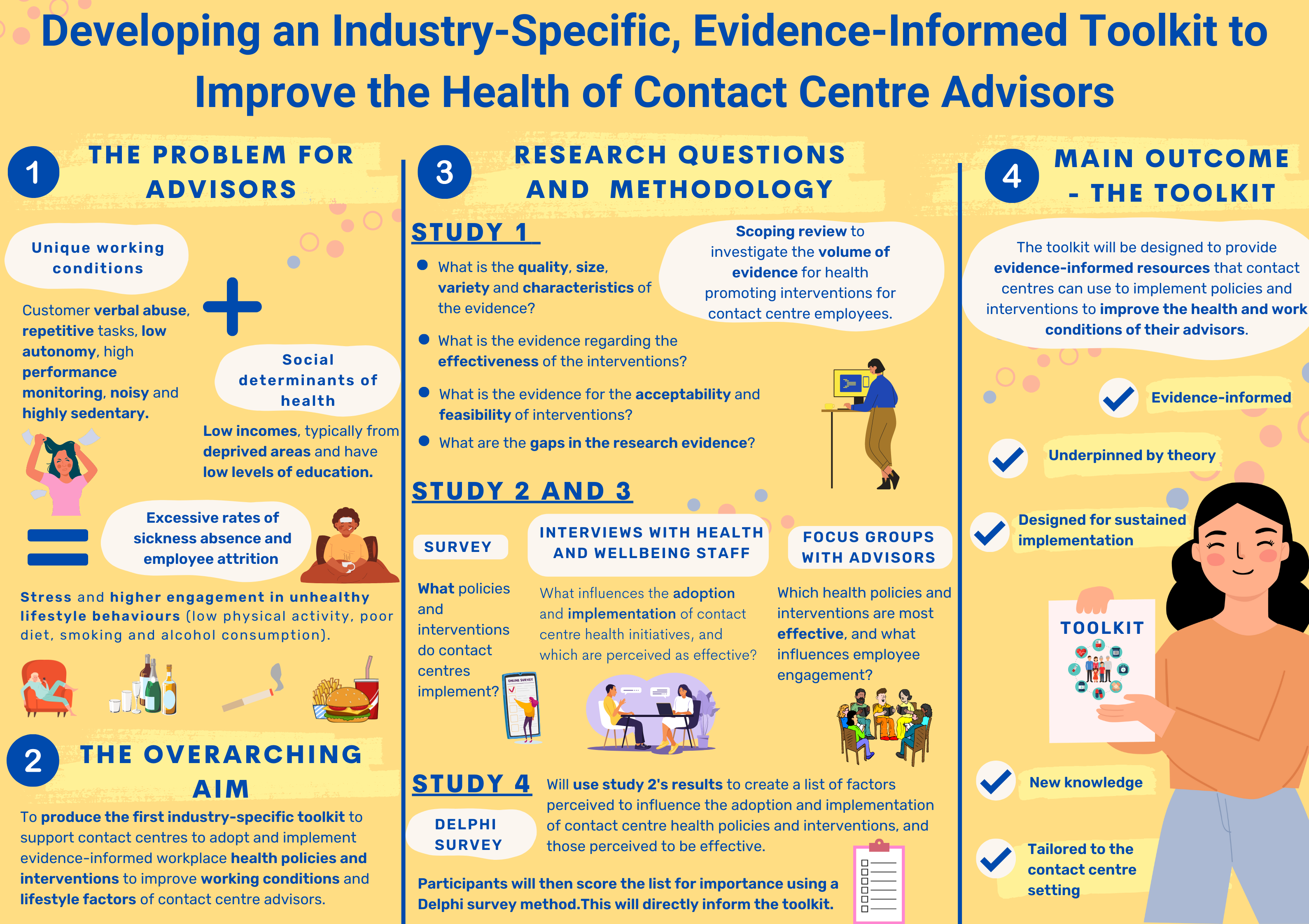Industry-specific toolkit to improve working conditions and lifestyle factors of call agents
PHD Student Zoe Bell
Contact centre advisors, especially in the North West of England, typically live on low incomes and are from deprived areas. They experience high levels of stress due to conditions at work, such as continuous performance monitoring and sitting for long periods. This financial and work-related stress increases their chances of smoking, drinking, having a poor diet and taking part in little physical activity and exercise. These unhealthy behaviours can lead to a decline in health, poor work performance, and promote high levels of absence and attrition. Overtime, these factors also increase the chance of advisors getting heart disease, type 2 diabetes, some cancers, and dying young.
This PhD explores how Contact centres can improve the health and work conditions of their advisors.
Supporting advisors through the workplace is important, as many advisors do not have enough money, time or support outside of work to access resources and services that can improve their health.
To do this, we will work with the sector to explore what centres currently do to improve the health and work conditions of their advisors, why some centres are more proactive at helping their advisors than others, and which policies and interventions are most effective. The project will create resources and guidance that contact centres can use to implement policies and interventions to improve the health and work conditions of their advisors. Ultimately, this inclusive and workplace-wide approach will improve socioeconomic conditions in which advisors work and live, contributing to ARC NWC’s aim to reduce health inequalities.

Study 1: A systematic scoping review of health promoting interventions for contact centre employees
With no recent review, we conducted a systematic scoping review to investigate the volume, effectiveness, acceptability, and feasibility of health-promoting interventions for contact centre advisors. This will inform the adoption and implementation of evidence-based practice, and future research. You can read the published paper here.
A summary of the review for a lay audience
This video is a short summary of a review researchers at Liverpool John Moores University conducted to explore the types of health-promoting interventions that have been researched in contact centres
A summary of the review for an academic audience
Researchers at Liverpool John Moores University and Lancaster University have conducted a systematic scoping review for health promoting interventions in contact centres. This video is a short summary of the academic paper published in the PLOS ONE journal.
Scoping review infographic
To access the scoping review infographic, please click here.
Project Collaborators

If you would like to be involved in the research or have any questions please contact the principle investigator
Principal Investigator: Zoe Bell
LJMU postgraduate research student
E: z.e.bell@2022.ljmu.ac.uk
LJMU School/faculty: Sports and Exercise Sciences